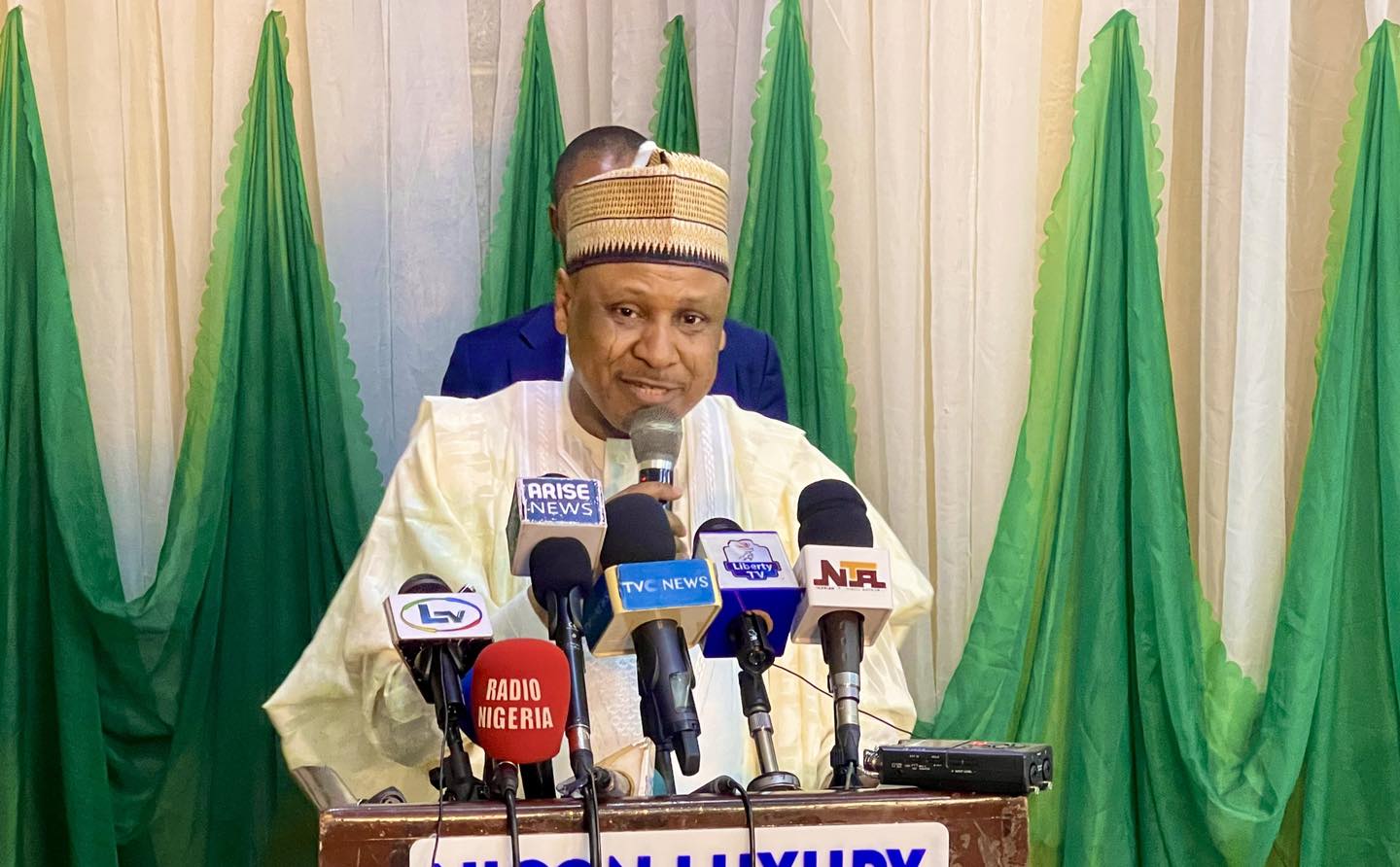Headlines
Minister: Nigerian Govt Does Not Intimidate Media

The minister declares that the Nigerian government upholds media freedom and does not engage in acts of intimidation.
According to Mohammed Idris, the Minister of Information and National Orientation, President Bola Ahmed Tinubu’s government does not harass or bully the media.
Thus, he appealed to both global and domestic news agencies to abide by the values of impartiality, precision, and integrity while covering topics relating to Nigeria.
During a visit from the British Broadcasting Corporation (BBC) on Thursday, Idris expressed that although Tinubu’s administration is committed to preserving press freedom, he expects international media outlets to exercise caution when reporting.
The minister stressed the significance of reporting that is fair and impartial.
He emphasized the importance of showcasing a comprehensive representation of Nigeria, acknowledging that every nation confronts obstacles. He urged international media to avoid fixating solely on the negative facets and embrace an accurate portrayal instead.
We encourage you to maintain a balanced portrayal of our country by including our perspective in your stories. Nigeria is not only associated with negative aspects, but we have many commendable achievements that your correspondents on the ground can attest to. We are witnessing gradual progress towards prosperity, and it would be beneficial if this were also highlighted in media coverage.”
Read Also: FG Accuses Chinese Firm of Fraudulent Bid to Seize Jets
He stated, “I wish to express the Nigerian government’s dedication towards all journalistic entities. Our goal is to remain impartial and unrestricted in our efforts.”
The minister admitted that there have been no reports received by the Nigerian government about journalists from international media outlets being harassed while working in the country.
He said that the Tinubu administration’s policy is to allow every news organization to freely practice their profession and he was pleased that none of our staff members had been harassed or subjected to government pressure in Nigeria.
According to Idris, the BBC showed great wisdom by relocating their Hausa Service studio from London to Abuja in order to be closer and more relevant to their audience and markets. He emphasized that this excellent decision resulted in employing approximately 200 Nigerians throughout the country who work for the BBC.
The minister conveyed his delight in the long-lasting confidence and reciprocal admiration of the Nigerian audience towards BBC.
According to him, the BBC has been in partnership with Nigerians for many decades. This alliance is characterized by a dedication to the content broadcasted on the network and an unwavering faith and confidence from Nigerian citizens that have remained intact for roughly 50-60 years.
He applauded the BBC for initiating a program to enhance the skills of certain journalists employed by public media organizations and requested that they expand this initiative to benefit private media establishments as well.
Mr Jonathan Munro, the Director of Global News and Deputy CEO of BBC expressed his delight on the impressive reputation that BBC has garnered in Nigeria during his first visit to the country.
According to him, the BBC’s presence in Nigeria has widened as it now uses multimedia channels and broadcasts in Pidgin, Hausa, Igbo and Yoruba languages to cater for its varied viewership.
Describing Nigeria as a global powerhouse, Mr. Munro revealed that the BBC’s news services attract an impressive weekly audience of about 30 million people in the country – ranking it third amongst international markets for the broadcasting corporation, following only USA and India.
